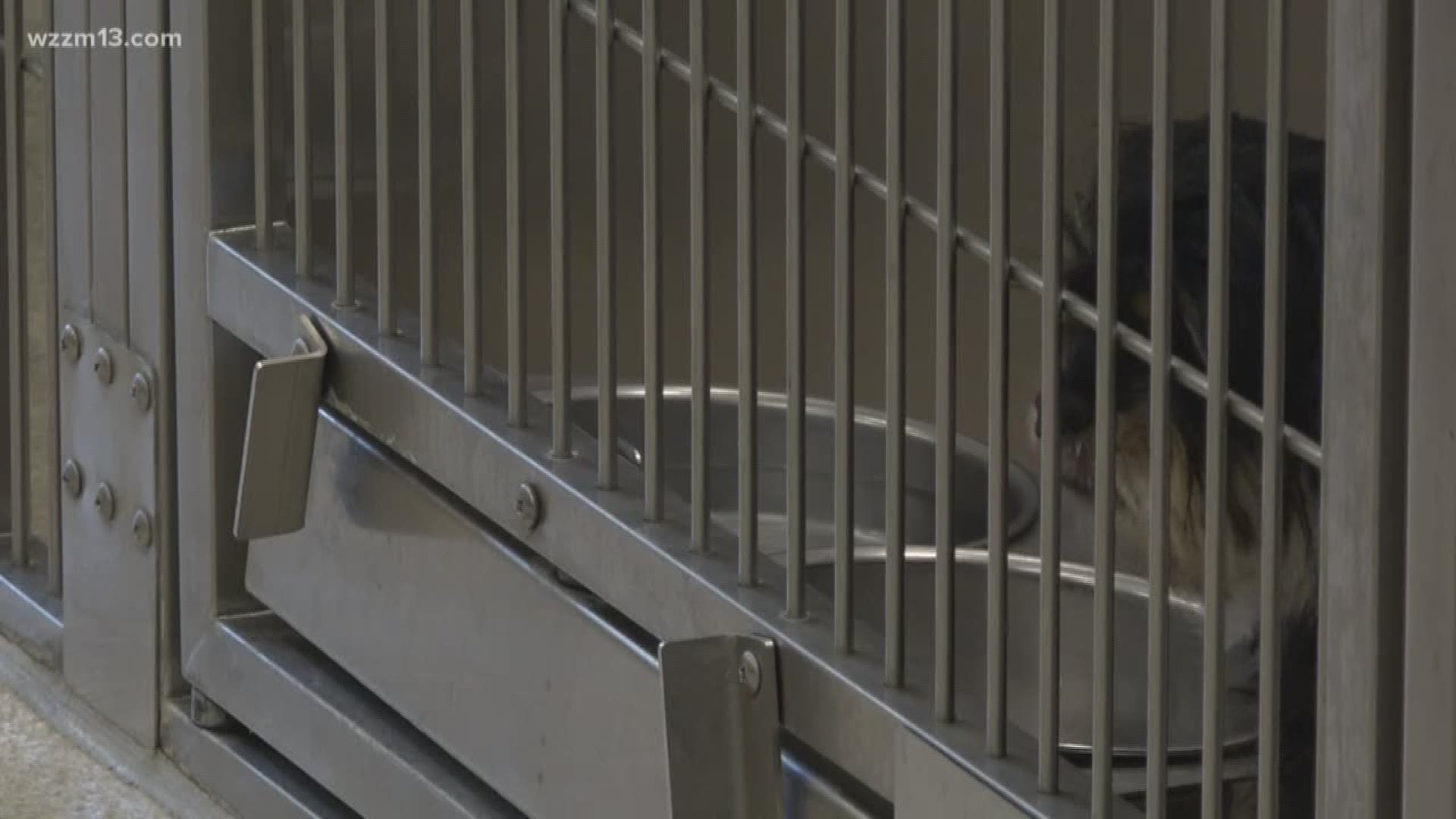GRAND RAPIDS, Mich. – The Kent County Animal Shelter put down 39 percent of the dogs and cats admitted in 2017, one of the highest euthanization rates in the state.
The shelter, which does not turn away any animals, euthanized 758 dogs and 679 cats. Only two other shelters in the state recorded lower release rates, according to the Michigan Department of Agriculture and Rural Development’s annual shelter report data.
The numbers are not surprising because of what the shelter is tasked to do, said Carly Luttman, the shelter’s program supervisor.
“We’re the only organization [in the county] with animal control that’s impounding aggressive and stray animals, and we do have a responsibility for public safety,” Luttman said.
The numbers don’t account for euthanizations by request of the owners. The shelter does not put down animals that are behaviorally healthy or to clear space, Luttman said.
"The reasons that we have to euthanize animals is because they're beyond resources because of issues with behavior or health or because they pose a threat to the community, in most cases with behavioral issues,” she said.
The Kent County Animal Shelter’s euthanasia rates dropped steadily since 2015. But Deborah Schutt, board chair of the nonprofit Michigan Pet Fund Alliance, said the shelter far behind other shelters in the state and .
Shelters operating under best practices have euthanasia rates of 10 percent or fewer, Schutt said.
The Humane Society of West Michigan, a shelter-by-appoint that works with Kent County, euthanized only seven percent of its intake. Every shelter assesses behavior differently, but all euthanization rates should be similar anywhere, said Namiko Ota-Noveskey, the Humane Society’s director of animal care and behavior.
“Most dogs displaying aggression show, more or less, fear-induced defensive aggression,” Ota-Noveskey said. “So the first step in working with those is to change your response.”
The people at the Kent County Animal Shelter care deeply about the animals, Luttman said.
“[They care] about the work they’re doing to help animals and help the people in our community,” she said. “But an unfortunate reality of our job is that public safety is our number one priority. And we have to hold firm to that.”
►Make it easy to keep up to date with more stories like this. Download the 13 ON YOUR SIDE app now.
Have a news tip? Email news@wzzm13.com, visit our Facebook page or Twitter.

